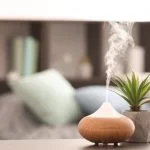Have you ever wondered where to study aromatherapy? Aromatherapy is a holistic healing treatment that uses natural plant extracts to promote health and well-being. The practice of aromatherapy involves the use of essential oils to enhance physical, psychological, and emotional health. If you are interested in exploring the healing power of essential oils and learning how to incorporate them into your daily life or professional practice, studying aromatherapy could be the perfect option for you.
Studying aromatherapy offers numerous benefits, including gaining a deep understanding of how essential oils can positively impact health and well-being. Many people choose to study aromatherapy to become certified practitioners or simply to enhance their knowledge and skills in holistic wellness practices. Whether you are interested in pursuing a career in aromatherapy or simply want to learn more about the practice for personal use, choosing the right program is crucial.
When considering where to study aromatherapy, there are several important factors to take into account. It’s essential to consider factors such as accreditation, curriculum, and faculty expertise when selecting an aromatherapy program. Additionally, potential students should also consider the flexibility and convenience offered by online courses, as well as opportunities for studying abroad at international aromatherapy schools.
With a variety of specialized certification programs available, individuals can focus on specific areas of practice within the field of aromatherapy. Whether your interest lies in clinical applications, spa treatments, or holistic wellness practices, there are programs available to meet your needs.
The Benefits of Studying Aromatherapy
One of the key benefits of studying aromatherapy is gaining insight into how different essential oils can affect mood and alleviate symptoms of stress, anxiety, and depression. Aromatherapy has also been shown to have a positive impact on sleep quality, with certain essential oils promoting relaxation and better rest. Additionally, the use of essential oils in aromatherapy can provide relief from headaches, muscle pain, and digestive issues.
Studying aromatherapy also allows individuals to explore the potential benefits for skin care and overall physical health. Essential oils are known for their antimicrobial and anti-inflammatory properties, making them valuable in treating various skin conditions and supporting a healthy immune system. Understanding these impacts on health and well-being is important when considering a career in holistic health or wellness coaching.
| Aromatherapy Benefit | Impact |
|---|---|
| Mental Health | Alleviates stress, anxiety, depression; improves sleep quality |
| Physical Health | Relieves headaches, muscle pain; supports skin care; boosts immune system |
Factors to Consider When Choosing an Aromatherapy Program
When choosing an aromatherapy program, there are several important factors to consider to ensure that you receive a comprehensive and high-quality education. The following are key considerations when choosing an aromatherapy program:
- Accreditation: Look for programs that are accredited by reputable organizations such as the Alliance of International Aromatherapists (AIA) or the National Association for Holistic Aromatherapy (NAHA). Accreditation ensures that the program meets certain standards of quality and rigor.
- Curriculum: Evaluate the curriculum of the program to make sure it covers a wide range of topics related to aromatherapy, including essential oil chemistry, therapeutic uses of essential oils, blending techniques, safety guidelines, and business practices for aromatherapists.
- Faculty Expertise: Research the qualifications and experience of the faculty members who will be teaching in the program. Look for instructors who have extensive knowledge and expertise in aromatherapy and related fields, such as herbalism or holistic health.
By considering these factors, you can ensure that you select an aromatherapy program that will provide you with a solid foundation of knowledge and skills in this healing art.
Additionally, it’s important to consider whether the program offers hands-on training or clinical practice opportunities. Practical experience is crucial for developing proficiency in using essential oils for therapeutic purposes. Look for programs that include internships, externships, or other practical components to supplement classroom learning.
Top Aromatherapy Schools in the United States
Are you interested in pursuing a career in aromatherapy? If so, it is crucial to choose the right school that can provide you with the knowledge and skills needed to succeed in this field. Below is a comprehensive guide to some of the top aromatherapy schools in the United States:
- Aromatic Studies Institute: Located in California, this institute offers a variety of programs in aromatherapy, including courses on blending essential oils, and using aromatic plants for healing.
- American College of Healthcare Sciences: Based in Oregon, this college provides online and on-campus programs focused on clinical aromatherapy and herbal medicine.
- New York Institute of Aromatherapy: This institute offers a range of courses for both beginners and experienced practitioners. Located in New York City, it provides hands-on training and education on the therapeutic uses of essential oils.
These are just a few examples of the many reputable institutions offering aromatherapy programs in the United States. When choosing a school, it is essential to consider factors such as accreditation, curriculum, and faculty expertise. Additionally, be sure to research each program’s focus areas and teaching methods to find one that aligns with your career goals within the field of aromatherapy.
Remember that finding the right school is an important step towards establishing a successful career in aromatherapy. Each program has its strengths and unique offerings, so take the time to explore your options before making a decision. Whether you prefer an on-campus experience or the flexibility of online learning, there are numerous opportunities available for individuals interested in studying aromatherapy at reputable institutions across the country.
Online Aromatherapy Courses
Overview of Online Aromatherapy Courses
For individuals who are unable to attend traditional in-person classes, online aromatherapy courses offer a flexible and convenient alternative. These distance learning programs provide students with the opportunity to study at their own pace, without the need to relocate or adhere to a structured class schedule. With access to virtual lectures, interactive modules, and online resources, students can acquire the knowledge and skills necessary for a career in aromatherapy from anywhere in the world.
Benefits of Choosing Online Aromatherapy Courses
One of the primary advantages of enrolling in an online aromatherapy course is the ability to balance education with other personal or professional responsibilities. Distance learners have the flexibility to create their own study schedule, allowing them to continue working full-time or managing family commitments while pursuing their education. Additionally, online courses often provide opportunities for networking and collaboration through virtual student forums and discussion boards, fostering a sense of community among participants despite physical distance.
Factors to Consider When Selecting an Online Program
When choosing an online aromatherapy course, it is crucial to consider factors such as accreditation, curriculum comprehensiveness, and faculty expertise. Accreditation ensures that the program meets industry standards and qualifies graduates for certification or licensure.
The curriculum should cover a wide range of topics related to essential oils, holistic health practices, and business skills for prospective aromatherapists. Furthermore, examining the qualifications and experience of the faculty members can provide insight into the quality of instruction that students will receive in an online program.
International Aromatherapy Schools
Studying abroad can be a rewarding experience, especially when it comes to learning about aromatherapy. International aromatherapy schools offer unique educational opportunities that provide students with a global perspective on the practice and application of essential oils for health and well-being. By studying abroad, students not only gain valuable knowledge and skills in aromatherapy but also immerse themselves in different cultures, traditions, and healing practices from around the world.
When considering international aromatherapy schools, it’s important to research the programs offered, faculty expertise, and accreditation. Look for schools that offer comprehensive curriculums covering topics such as essential oil extraction methods, blending techniques, therapeutic properties of essential oils, and ethical considerations in aromatherapy practice. Additionally, choose a program with experienced faculty members who are recognized experts in the field.
One of the advantages of studying at an international aromatherapy school is the opportunity to participate in hands-on learning experiences such as visiting botanical gardens, attending workshops led by local practitioners, and gaining insight into indigenous plant medicine. These immersive experiences allow students to deepen their understanding of different cultural perspectives on holistic health and wellness while expanding their knowledge of essential oils and their applications.
| Considerations | Details |
|---|---|
| Programs Offered | Comprehensive curriculum covering various aspects of aromatherapy |
| Faculty Expertise | Experienced faculty members who are recognized experts in the field |
Specialized Aromatherapy Certification Programs
For individuals who are interested in delving deeper into the field of aromatherapy and specializing in specific areas of practice, there are specialized certification programs available. These programs are designed to provide in-depth knowledge and training in particular aspects of aromatherapy, allowing students to develop expertise in their chosen area. Whether it’s clinical aromatherapy, aromatic medicine, or spa and wellness aromatherapy, these specialized certification programs can open up new opportunities for aspiring professionals in the field.
One popular specialization within aromatherapy is clinical aromatherapy, which focuses on using essential oils to support health and well-being in a clinical setting. Certification programs in clinical aromatherapy typically cover topics such as anatomy and physiology, essential oil safety, blending techniques for specific health conditions, and therapeutic applications of essential oils. Graduates of these programs may pursue careers as clinical aromatherapists working alongside healthcare professionals to provide complementary care to patients.
Another area of specialization is aromatic medicine, which combines the use of essential oils with other natural therapies to address a wide range of health concerns. Aromatic medicine certification programs often include coursework on herbalism, nutrition, and holistic healing modalities in addition to comprehensive training in aromatherapy practices. Graduates may find opportunities to work in integrative healthcare settings or establish their own practices using aromatic medicine principles.
Spa and wellness aromatherapy is another popular specialization that caters to individuals interested in providing holistic treatments in spa environments. Certification programs focusing on spa and wellness aromatherapy typically cover topics such as relaxation techniques, stress management strategies, aromatic massage therapy, and creating customized aromatherapy blends for clients. Graduates may pursue careers as spa therapists or wellness practitioners offering aromatherapy services to promote relaxation and overall well-being.
Funding Your Aromatherapy Education
When it comes to pursuing an education in aromatherapy, the cost of tuition and other expenses can be a significant concern for many aspiring students. However, there are various funding options available to help alleviate the financial burden of obtaining a certificate or degree in this field. Scholarships, grants, and financial aid can provide valuable support for those interested in studying the healing power of essential oils.
Scholarships
Several organizations and foundations offer scholarships specifically designed for students pursuing studies in aromatherapy. These scholarships can range from small one-time awards to substantial amounts that cover a significant portion of the tuition fees. It’s important for prospective students to research and apply for as many relevant scholarships as possible to increase their chances of receiving financial assistance.
Grants
In addition to scholarships, certain government agencies, nonprofit organizations, and educational institutions also provide grants to help students with the costs associated with their aromatherapy education. Grants do not have to be repaid and are often awarded based on financial need or other specific criteria set by the grantor. Students should carefully review eligibility requirements and application deadlines when seeking out potential grant opportunities.
Financial Aid Options
Lastly, students interested in studying aromatherapy may be eligible for various types of financial aid, such as federal student loans, work-study programs, or institutional aid offered by their chosen school. Filling out the Free Application for Federal Student Aid (FAFSA) is a crucial step in determining eligibility for different forms of financial assistance.
It’s recommended that students consult with the financial aid office at their prospective institution to explore all available options and create a comprehensive plan for funding their aromatherapy education.
Conclusion
In conclusion, the field of aromatherapy offers a wide range of opportunities for individuals interested in exploring the healing power of essential oils. Whether you are looking to study in the United States, abroad, or pursue an online program, there are numerous options available to suit your needs and preferences.
After considering the benefits of studying aromatherapy and the factors to consider when choosing a program, it is important to take the next steps in pursuing a career in this field. This may involve researching and applying to top aromatherapy schools in the US, exploring international study opportunities, or enrolling in specialized certification programs.
Furthermore, it is also crucial to consider funding options for your aromatherapy education such as scholarships, grants, and financial aid. By carefully researching and planning your next steps, you can set yourself on a path towards a successful career in aromatherapy and make a positive impact on health and well-being. Ultimately, with dedication and determination, you can embark on a fulfilling journey in the world of aromatherapy.
Frequently Asked Questions
What Qualifications Do You Need to Be an Aromatherapist?
To become an aromatherapist, you typically need to have a certification or diploma in aromatherapy from a reputable school or program. Some essential qualifications for this career include knowledge of essential oils, their properties, and how they interact with the body.
It’s also beneficial to have a strong understanding of human anatomy and physiology, as well as the ability to create personalized aromatherapy treatments for clients.
What Is the Best Aromatherapy Course?
The best aromatherapy course will depend on your individual needs and preferences. It’s essential to research different programs and consider factors such as accreditation, curriculum, hands-on training opportunities, and instructor credentials.
Look for courses that cover topics like essential oil safety, blending techniques, aromatherapy applications, and ethical standards in practice. Ultimately, the best course is one that aligns with your educational goals and helps you develop the skills needed to succeed as an aromatherapist.
How Can I Learn About Aromatherapy?
There are several ways to learn about aromatherapy. You can start by reading books and reputable online resources that cover the basics of essential oils, their uses, and safety guidelines. Another way to learn is by taking courses or workshops offered by certified aromatherapists or accredited institutions.
Additionally, attending conferences or joining professional associations in the field can provide valuable networking opportunities and access to experts in aromatherapy practice. Finally, consider seeking mentorship from experienced practitioners who can offer guidance and firsthand knowledge about working in the field of aromatherapy.

Are you looking for a natural way to improve your health and wellbeing?
If so, aromatherapy may be the answer for you.




